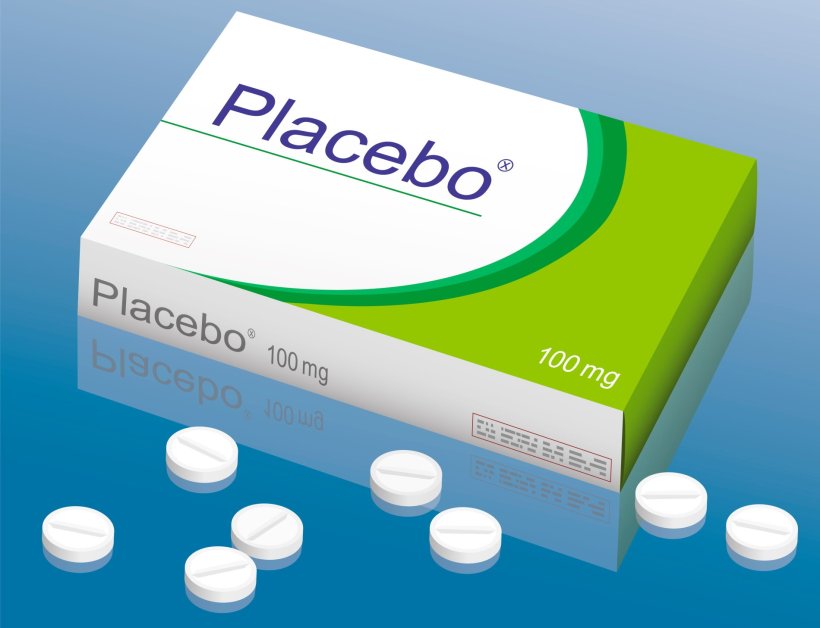
Image source: Adobe Stock/Peter Hermes Furian
News • Replacement of unnecessary medicines
Are placebos fair game in healthcare? New study confirms
Using placebos in primary care to reduce overprescribing, conserve existing antibiotics and limit further resistance, is publicly acceptable, a new study shows.
Dr Eva Krockow, Lecturer and lead of the Health and Wellbeing (with Ageing) Research Group in the School of Psychology and Vision Sciences, has tested public acceptability for placebos as a way of tackling the global healthcare problem of overtreatment and growing antibiotic resistance.
Placebos are substances with no known therapeutic properties that can improve illness symptoms through patients’ expectations. Traditionally, placebos have been used in medical research and clinical trials to help scientists evaluate the effects of new medication. However, they could play a role in primary care to replace the unnecessary use of medicines.
There are different types of placebos available but indications are that the type with the biggest potential for use in primary care are “impure, open-label placebos”. These are replacement treatments that are offered without any patient deception. They provide some symptom relief but do not treat the primary illness such as anti-inflammatory lozenges or nasal spray for viral infections.

Image source: University of Leicester
Dr Krockow’s findings - taken from across three separate studies - suggest public acceptability for greater use of placebos in place of inappropriate antibiotics, antidepressants or pain relief medication (analgesics). On average, participants rated the honest use of impure placebos in place of inappropriate antibiotics as 4 out of 5 on an acceptability scale, which translates into “somewhat acceptable”.
Her findings have now been published in BMC Medicine.
Dr Krockow said: “Our aim was to test public acceptability for a new behavioural strategy to tackle the global healthcare problem of overprescribing and antibiotic overtreatment in particular. We know that growing resistance of bacteria to existing antibiotic medicines poses a serious health problem, because it means that simple infections may no longer be curable with current medication. Unfortunately, overprescribing still happens very frequently. This is partly because patients prefer an active medical solution for their symptoms, even if antibiotics are not appropriate.
“While research into feasible alternatives takes place, it’s vital that we limit current use of existing medicines, particularly when the benefit of prescription may be questionable and costly to the patient. The wider use of placebos as a treatment option could potentially have the same or even greater effect without adding to further resistance.”
Researchers from the University of Leicester used three studies which involved focus group discussions and online surveys with large, representative samples from the UK general population to explore attitudes. They explored what types of placebos might be most acceptable, which illnesses they might best be used for and what personality factors and other characteristics might determine their acceptability.
Our studies suggest that the use of placebos, especially open-label impure placebos, could help to address this long-standing healthcare challenge [overprescribing]
Eva Krockow
Study one explored the potential use of placebo for the use of respiratory infections in an in-depth qualitative study involving focus group discussions with members of the general public. Participants expressed an understanding for the importance of curbing overprescribing and stated support for placebo use. They also believed in placebo effectiveness, with some likening placebos to foods in which an active ingredient had been removed such as decaffeinated coffee.
Study two used a representative online sample size of 980 participants to investigate attitudes towards different treatment options for respiratory infections. Participants were given five different treatment options:
- antibiotics,
- no treatment,
- blinded pure placebo (patient is unaware they are receiving placebo with no known therapeutic benefit),
- open label pure placebo (patient is aware they are receiving placebo with no known therapeutic benefit), and
- open label impure placebo (patient is aware of placebo which may provide some symptom relief but does not treat the main illness).
Study three used a representative online sample of 1,177 participants to compare attitudes towards treatment options across three clinical scenarios: respiratory infection, depression and pain. Findings suggested significant differences in the acceptability of placebo options based on the clinical context. Options for open-label pure placebos, open-label impure placebos and no treatment were rated significantly more acceptable for tackling infections compared to depression and pain scenarios.
Those of a lower age group, who had not seen a doctor in the past 12 months and/or taken antibiotics and did not consider themselves to have a chronic illness, were also more likely to rate placebo treatments as more acceptable and effective. Terminology around placebo labelling was also a factor in how they were likely to be perceived. Participants indicted that the labels “pure” and impure” held inherent connotations that could affect a patient’s attitude.
Dr Krockow said: “Overall, people are very accepting of placebo to reduce unnecessary or potentially harmful medication use. Acceptability of placebo was particularly high in the context of viral infections such as common colds where placebos might be used to replace unnecessary antibiotic treatments. People were most supportive of “open-label, impure placebos”, which are replacement treatments that offer some symptom relief but do not treat the primary illness (e.g., anti-inflammatory lozenges for respiratory infections). Importantly, this type of placebo does not involve any deception, because patients are fully informed about the treatment they receive.
“Our research presents the first comprehensive investigation of a novel strategy for tackling overprescribing in primary care. Our studies suggest that the use of placebos, especially open-label impure placebos, could help to address this long-standing healthcare challenge. Our research is a stepping stone for follow-up clinical intervention studies where the use of placebos is tested in practice.”
Source: University of Leicester
03.10.2023







